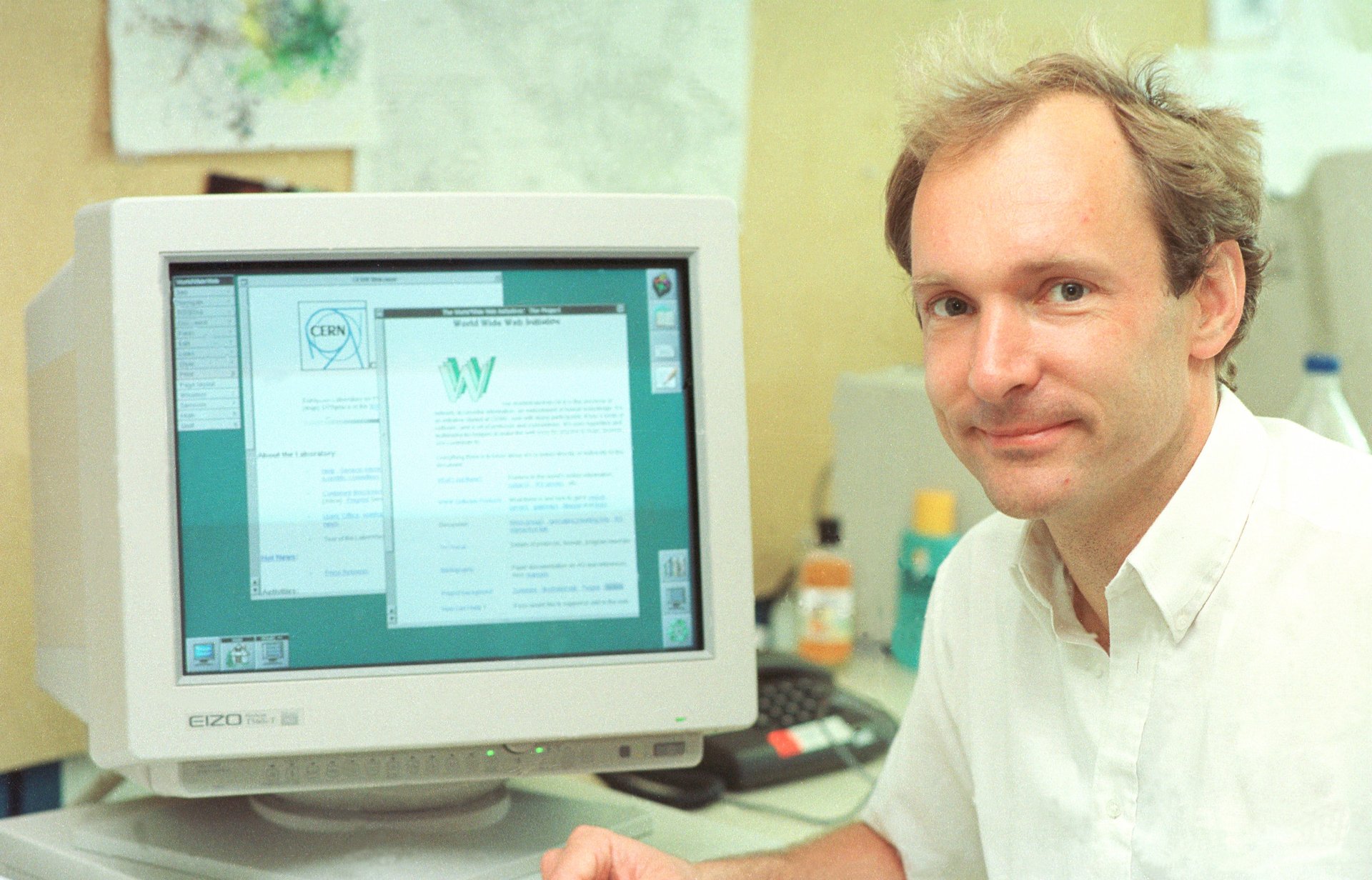The web is still in its awkward teenage phase according to its father, Tim Berners-Lee
When Tim Berners-Lee created the World Wide Web on this day (March 12) 30 years ago, he thought it was operating in “a simple, star-spangled, unicorn-sky world.”


When Tim Berners-Lee created the World Wide Web on this day (March 12) 30 years ago, he thought it was operating in “a simple, star-spangled, unicorn-sky world.”
But in the three decades since, his idealistic ambitions for the web’s early days have been met with a decent wallop from the realities of adulthood.
It all started rather innocently. In 1989, some scientists at CERN, the science research center in Switzerland, wanted to automatically share their information with fellow scientists working elsewhere in the world. Email already existed, but there was no easy way to transmit large amounts of data other than saving it on a disk and physically bringing it to another computer.
So Berners-Lee, a researcher working at CERN, created the World Wide Web. It solved the communication problem for the siloed scientists—and changed human existence as we know it.
Today, e-commerce generates $1.2 million every 30 seconds. 4.3 billion people, more than half the world’s population, use the web every day. The average American spends 24 hours—about a fifth of their waking life—online every week; in some countries, the number is even higher.
Back then, Berners-Lee called his vision for the web “utopian.” He wanted it to be a place where all people had access to the best information at any time. And the web we now use accomplishes that, at least to a certain extent. We’ve got sites like Wikipedia and Github, which are devoted to collaboration and information sharing. Developers and information seekers everywhere are the better for their existence.
In other ways, though, the web hasn’t fulfilled Berners-Lee’s vision. Malicious actors and their army of bots have filled the web with information that’s partisan and intentionally misleading, altering elections, driving genocide, and forcing people to question everything they read online. People phish, spam, SWAT, and steal one another’s identities. Rancor on social media sites like Twitter has made the normal process of debate and discussion seem pretty much impossible. Let’s face it—the web can sometimes be a cesspool.
Each year on this date, Berners-Lee writes an open letter about the state of web. For its 30th birthday, today’s inaugural address calls for companies and governments to introduce regulation in order to curtail the misinformation and hate speech that has made the web a less enjoyable place to spend time.
The need to involve regulators may be seen as a failure of the web’s original utopian vision—that humanity wasn’t responsible enough to operate in a space with few rules without abusing it. But that’s not how Berners-Lee sees it.
To celebrate the World Wide Web’s anniversary, we interviewed Berners-Lee to see how his original vision is holding up. Here’s an edited excerpt that show that Berners-Lee is still holding out hope that the web can be better for the next generation:
It’s the utopian vision growing up…
When it was 19 years old, it felt a little bit adolescent. When it was three, it might have had a very simple, star-spangled vision of itself. When it was small enough not to have been noticed by criminals, it was a wonderful time. When the National Science Foundation didn’t allow commercial use of it, we didn’t have to worry about advertising, because until they changed the acceptable-use policy, advertising wasn’t allowed. It was, in a way, in a protected, embryonic state before the NSF policy change.
At that point, [the web] was in transition to growing up. Coming-of-age rituals for the web included Cambridge Analytica, Trump, and Brexit—which might have been some of the more ghastly teenage moments. But when you grow up, you have to accept responsibility, you have to realize that free speech is great but hate speech is not. We have to rule out hate speech, which means we have to have a very complicated system for figuring out where the line is between hate speech and not speech at all.
So it’s no longer a simple, star-spangled, unicorn-sky world. But as you grow up, you accept these things, and you sit down and spend a certain amount of your life being a part of building those regulations, teaching your kids those regulations, and making sure those regulations work. You spend most of your life being an adult in a world that is really fun, but you’re also at work, very enabled, being able to do things previous generations could never do.
There’s a cost of the effort we’re asking you to put into the contract for the web, particularly now. But we think that as everybody goes through the coming of age, it’ll be worth the effort to make sure the web is a nice and constructive place, because it’ll be so wonderful to be in.